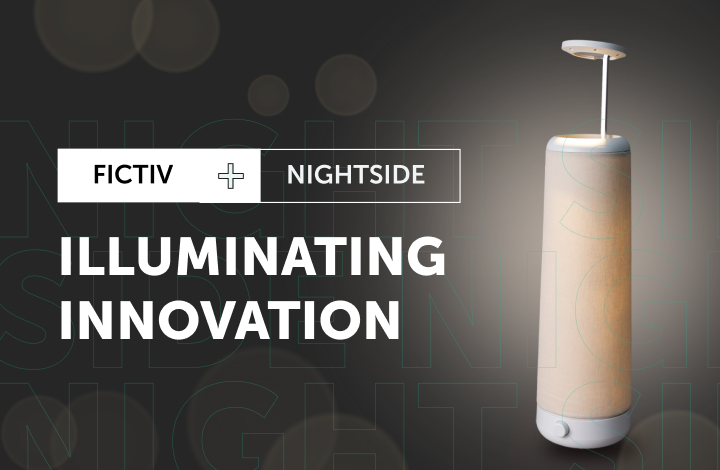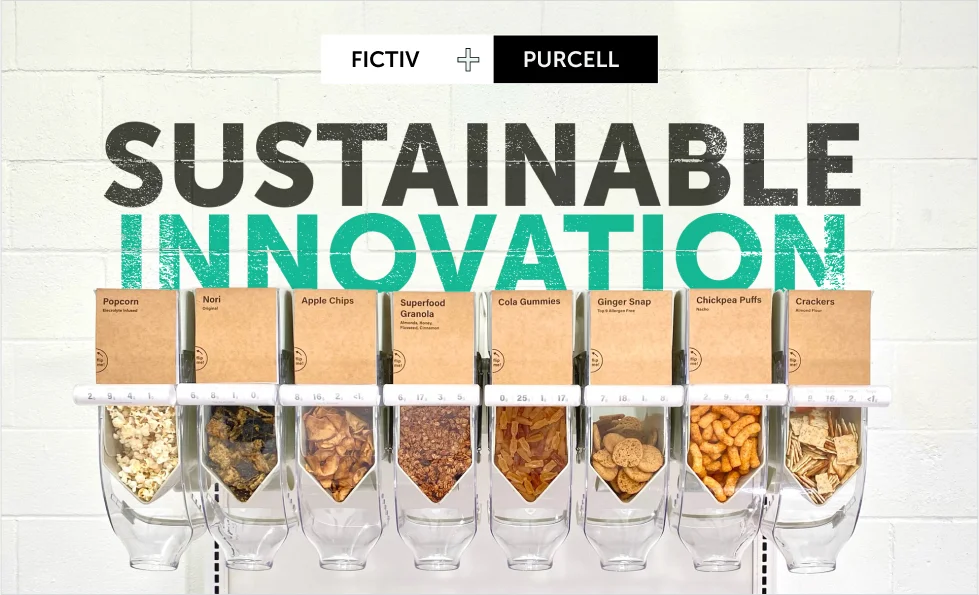
About Purcell
Purcell changes how bulk groceries are sold, offering higher profits to stores that can then offer lower pricing to customers—all while reducing packaging waste.
Industry: Consumer Products
Product: Sustainable bulk food dispensers.
Location: Santa Cruz, CA
Why Fictiv
Customer Challenges: Purcell came to Fictiv for validation and testing of their prototypes as well as help preparing for production. They required significant DFM feedback and engineering expertise, as well as custom, precision parts.
Capabilities Leveraged:
- Injection Molding
- Custom Packaging
- Cost Down Guidance
- In-Depth DFM Analysis & Consultation
- Supply Chain Program Management Services
- Supply Chain Logistics Management Services
Results:
- Getting to market 6 months faster meant $100,000 in additional revenue
- 38% savings on up front tooling costs and 15% on ongoing manufacturing
- 10% savings on importing/logistics and 30-40% savings on landed costs
- In-depth, expert DFM guidance helped Purcell iterate their product quickly
- Lead times reduced by 40%
- 20% increase in total product margins
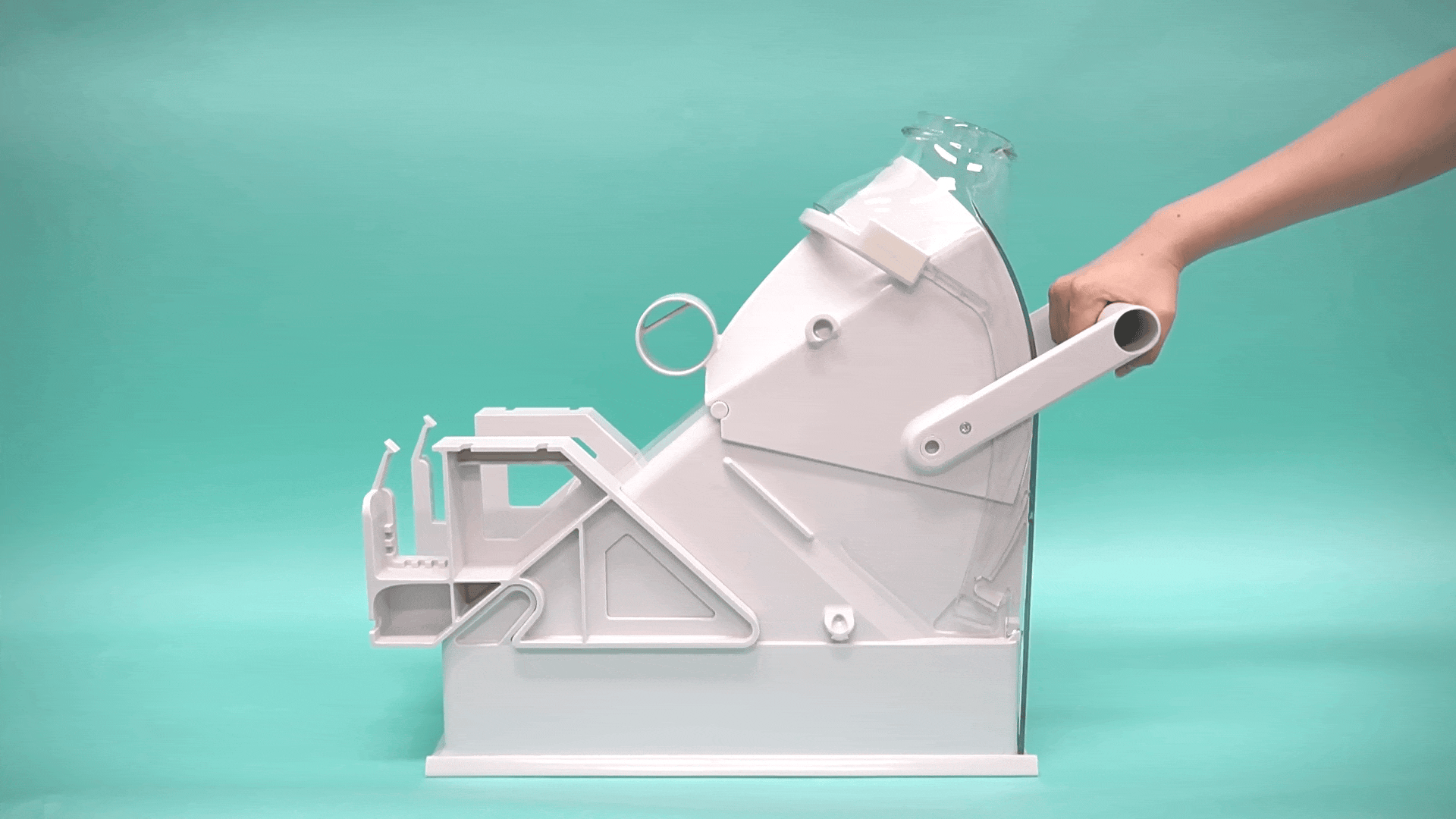
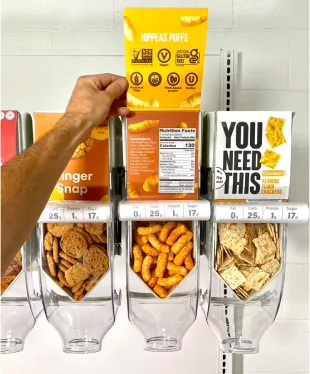
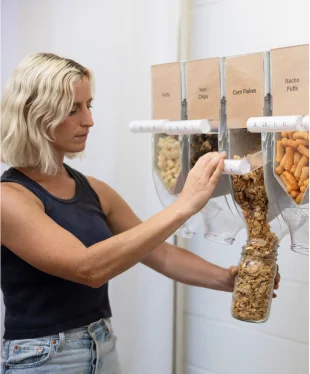
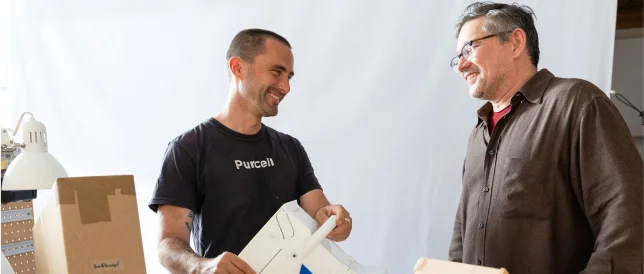
David Conway, Co-Founder of Purcell
“Every day without a finished product is a day without sales and revenue. Fictiv enabled us to go to market six months faster, for $100,000 in additional revenue.”
David Conway, Co-Founder of Purcell
Eliminating Plastics for Cleaner Waterways & Less Food Packaging Waste: Purcell’s Story
It’s not every day a maritime adventure turns into the mission of a lifetime. As a surfer, Coast Guardsman, and nature-lover for many years, David Conway was shocked to see the constant stream of floating plastic waste in the ocean. “Once I started traveling, it became apparent there’s a big trash problem. Even in remote waterways, you see plastic trash everywhere. My concerns grew over the years as I joined the Coast Guard and sailed around the world.” During his travels, one thing struck him more than any other: Everyone around the globe is dealing with out-of-control trash—especially plastic waste; even in uninhabited areas.
He went on to discover that food waste constitutes 75% of American household waste and is the largest single component of landfills. Moreover, it is projected to account for 2.8 billion tons of carbon emissions by 2050—roughly equivalent to 615 coal plants operating at full capacity.
In response, David and Russell Conway founded Purcell to reduce excessive packaging waste and transform the bulk economy with refill cartridges and streamlined dispensers.
Named after the inventor of the shipping container, who lowered the costs, complexity, and logistics of shipping goods, Purcell wants to be the shipping container for bulk food. “The reimagined bulk dispenser not only reduces packaging waste, it makes good business sense,” says David Conway.
“The reimagined bulk dispenser not only reduces packaging waste, it makes good business sense.”
David Conway, Co-Founder of Purcell
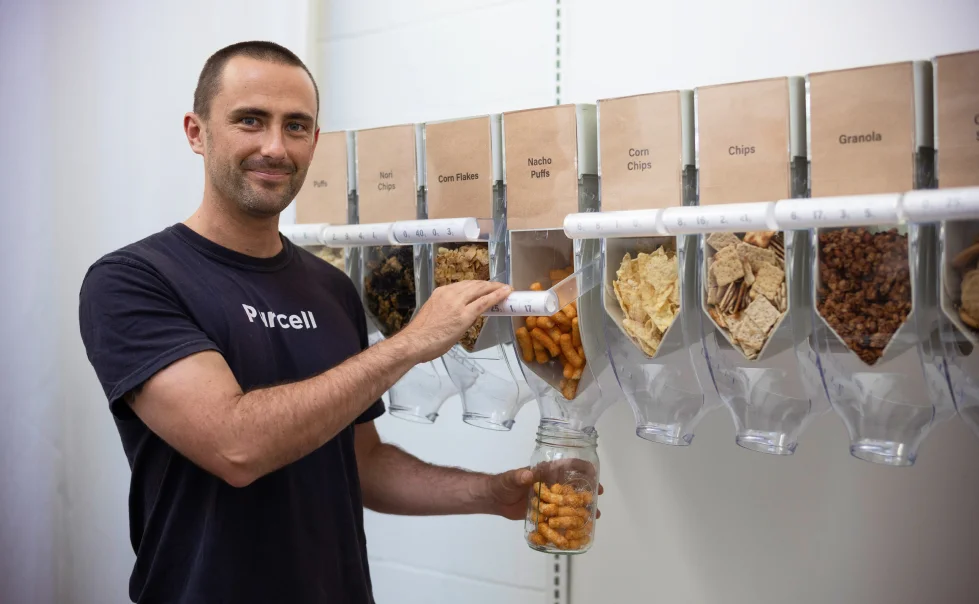
But that’s not all. Purcell’s bulk dispenser (the M1 dispenser) also enhances the shopping experience with features like automatic product identification and portion control, which ensures hygiene and convenience.
David Conway, Co-Founder of Purcell, describes embarking on their mission:
“For years, we scrounged around living out of our cars, working out of friends’ garages. We purchased 3D printers and started building prototypes. Then, we bought a van to travel to stores and show them our prototypes. We had a lot of failures over the years, but eventually, we landed where we are now with a reproducible product.”
“We had a lot of failures over the years, but eventually, we landed where we are now with a reproducible product.”
David Conway, Co-Founder of Purcell
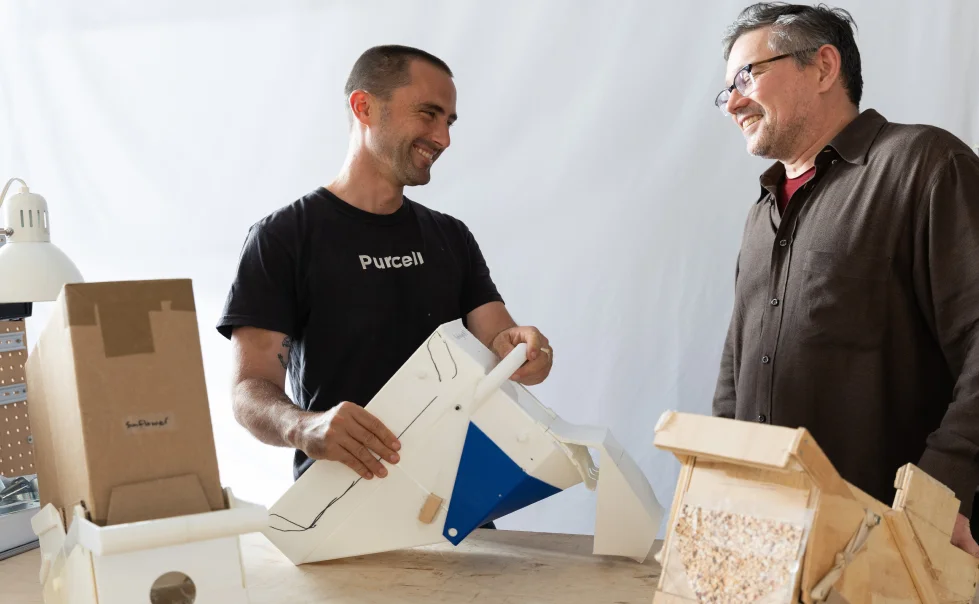
Over the past seven years, Purcell progressed from concept to hundreds of prototypes through testing and validation and numerous revisions—all to prepare for manufacturing. Turning their inspiration into a high-quality, affordable final product required a robust partnership with Fictiv and considerable effort to ensure their incredible designs could be manufactured. But it all goes back to sustainability.
Sustainability as a Business Advantage
They soon found that sustainable practices double customer margins. According to Conway, “We’re saying to customers we can make them twice as much money, with less packaging, more accuracy, and pass savings back to customers.” For Purcell’s customers, it’s an incredible opportunity to make sustainability a business advantage. For Purcell’s founders, offsetting excessive food packaging waste fuels their innovation and tenacity.
One of their biggest challenges was successfully manufacturing their dispensers. This took years of frustrating back and forth, which was finally solved by a Purcell-Fictiv partnership. According to Conway, “Every manufacturing process has challenges, but working with Fictiv is awesome. The outcome is always positive.”
“Every manufacturing process has challenges, but working with Fictiv is awesome. The outcome is always positive.”
– David Conway, Co-Founder of Purcell
Prototyping Challenges
Purcell needed to build successful prototypes to test with customers around the country. For Conway, “A lot of developing dispensers is hard, physical work, building different prototypes, sanding, finishing with epoxy. To do prototypes, you have to get them to a high level of fidelity to pilot and test them in the real world. So there were years of traveling all around. I’ve driven across the United States a dozen times, delivering our dispensers.”
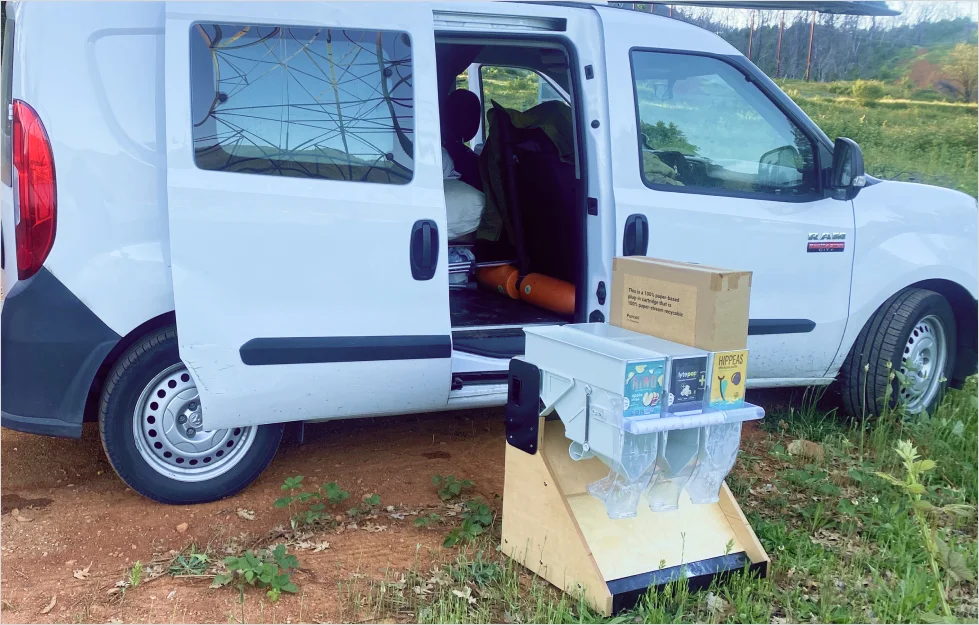
Conway spent a sweltering summer in Texas “…working with a large retailer doing installs for three months. I lived in my van without air conditioning, and it was tough. Based on feedback, we then had to refine the product (hundreds of times) to get it where we wanted it to be. It’s something that Russell and I have dedicated our lives to for the past seven years.” At that point, they thought they were ready for manufacturing but knew they needed the right partner. Choosing that partner took time and research.
Finding the Right Manufacturing Partner
Before finding Fictiv, Purcell had completed a few pilots with the current version of their M1 dispenser. “We’d arrived at something that worked. Everybody loved it, and there wasn’t any more negative feedback because we’ve made hundreds of prototypes, tested them in the market, refined them, and finally got one that worked mechanically. It worked beautifully. It was simple. It only had a few parts. The feedback was that everybody just wanted more of them. So we said, ‘How do we mass manufacture this? How do we go from 3D printing to being able to make thousands of these, to meet customer demand?’”
Initially, Purcell attempted to collaborate with an overseas supplier but faced challenges with communication, time zone differences, and pricing. The supplier struggled to provide the correct parts within the required price and lead time specifications. Purcell couldn’t find a manufacturing partner willing to go the extra mile with design expertise and guidance, help with logistics, and overall transparency to transition from design to a manufacturing-ready product.
“We evaluated a dozen different injection molders, comparing costs, transparency, and reliability. Every time, Fictiv emerged as the clear winner, offering the most reliability and the best value for our money.”
David Conway, Co-Founder of Purcell
“So we went back to our investors and advisors, who introduced us to Fictiv,” Conway explains, “Russell and I evaluated a dozen different injection molders, comparing costs, transparency, and reliability. Every time, Fictiv emerged as the clear winner, offering the most reliability and the best value for our money.”
David notes, “When choosing a manufacturing partner, I asked a number of vendors whether I could speak directly to the factory. Fictiv was the only company that said ‘yes.’ They were the only company that said they wouldn’t keep us in the dark.”
From concept to prototype to validation and finally to production, Purcell relied on Fictiv for:
- Transparency – Technology/AI-enabled digital platform with instant manufacturing, quality, and logistics updates
- Managed Services – Turnkey solutions with free presale, in-depth design for manufacturability analysis and consultation, production cost-down analysis, and human-touch DFM
- Quality – Manufacturing sites certified to ISO 9001, AS9100, ISO 13485, ISO 16949, on-site quality inspections & production audits, advanced product quality planning, and material certifications
- Mechanical Assembly Services – Kitting and part assembly
- Supply Chain Agility – Regional model of supplier management, production, logistics optimization, and overseas boots-on-the-ground capabilities
By the Numbers
With 40% faster injection molding lead times vs alternative solutions, Fictiv was able to help Purcell get to market 4-6 months faster than expected. As a result, Purcell gained an additional $100,000 in revenue. And not only was Fictiv’s manufacturing solution faster than alternatives, it was also more cost effective. Fictiv’s pricing delivered Purcell 38% savings in upfront tooling costs and 15% in ongoing manufacturing costs vs alternatives. Additionally, Fictiv provided Purcell with in-house logistics management services, saving them an additional 10% compared to the cost of expensive third party logistics services. All in all, Purcell achieved 30-40% savings in total landed cost and an impressive 20% increase in their total product margins.
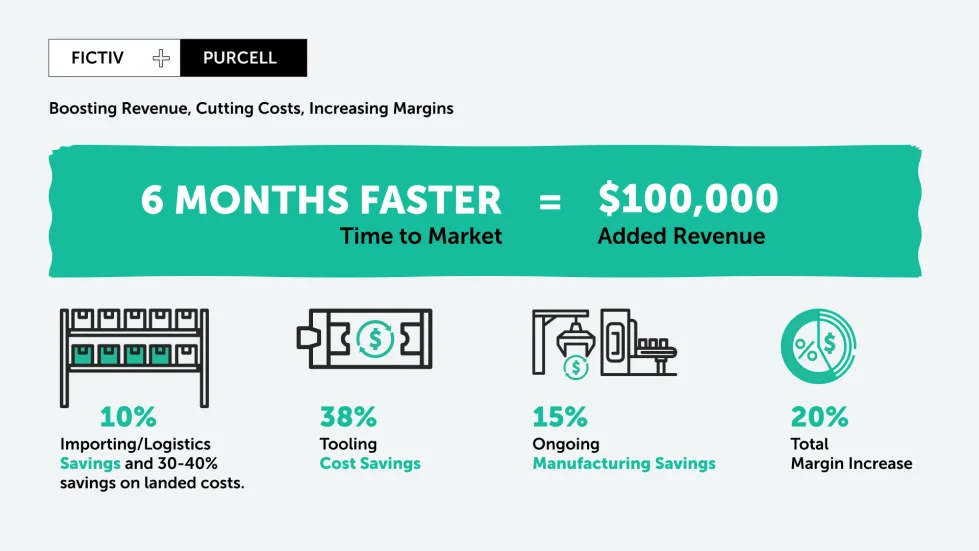
The Path to Production
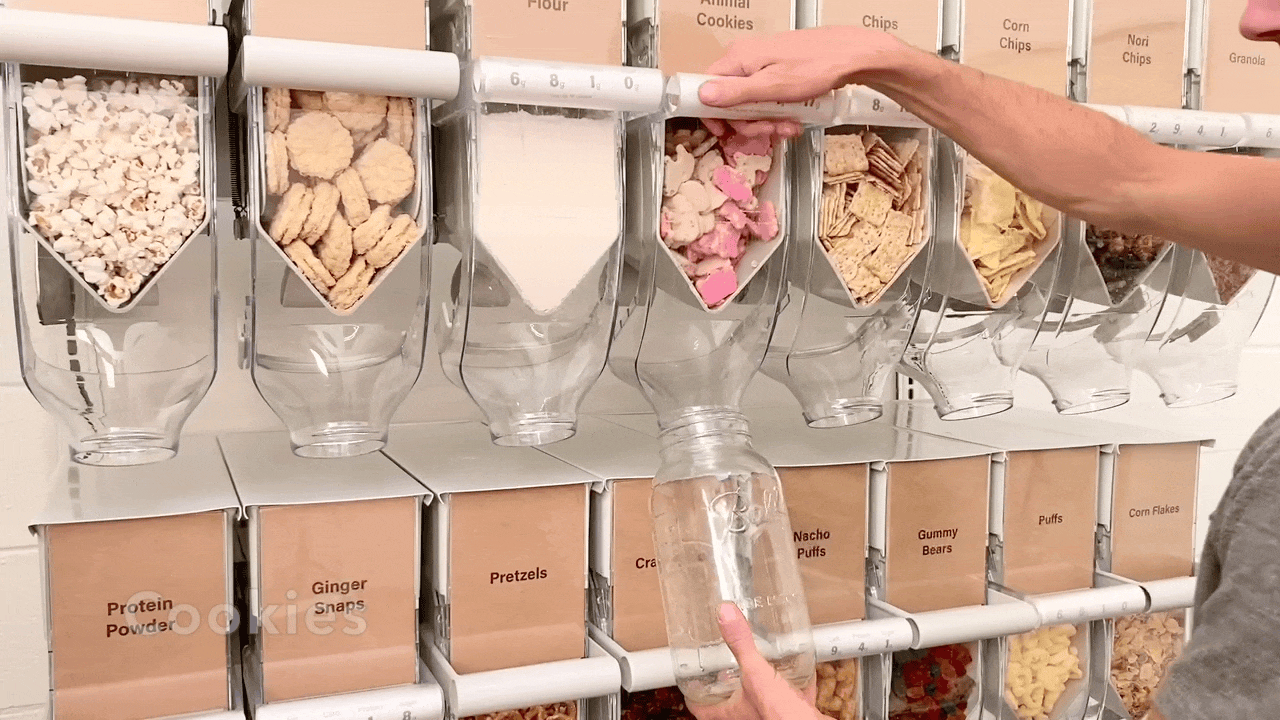
With Fictiv’s expert guidance, Purcell realized they needed to re-design their parts for Injection Molding versus the prototype 3D printing process. Conway notes, “The work we’d done had to be thrown out, and we had to build all of the CAD models from scratch to make them moldable. We went through that process with Fictiv and got feedback throughout the process of parting lines and all the different elements you have to think about, such as draft angles. And so we went through all that with Fictiv, specifically the design for the manufacturing process.”
Expert DFM Guidance
From the beginning, Purcell approached Fictiv for in-depth DFM guidance. Each bulk dispenser part required its own DFM review, hundreds of revisions, and then more feedback until they reached a point where it was feasible to move into production.
For example, friction between each part of the product was critical. Too much friction meant the sliding material wouldn’t move smoothly and even potentially prematurely wear or fracture. Fictiv helped Purcell resolve this issue with expert design modifications, validated the design’s function with 3D printing, and then provided the prototype to Purcell.
To get the sliding action right, frequent meetings were held between Fictiv and Purcell. Purcell also benefited from Fictiv’s engineering experts in injection molding and plastic design.
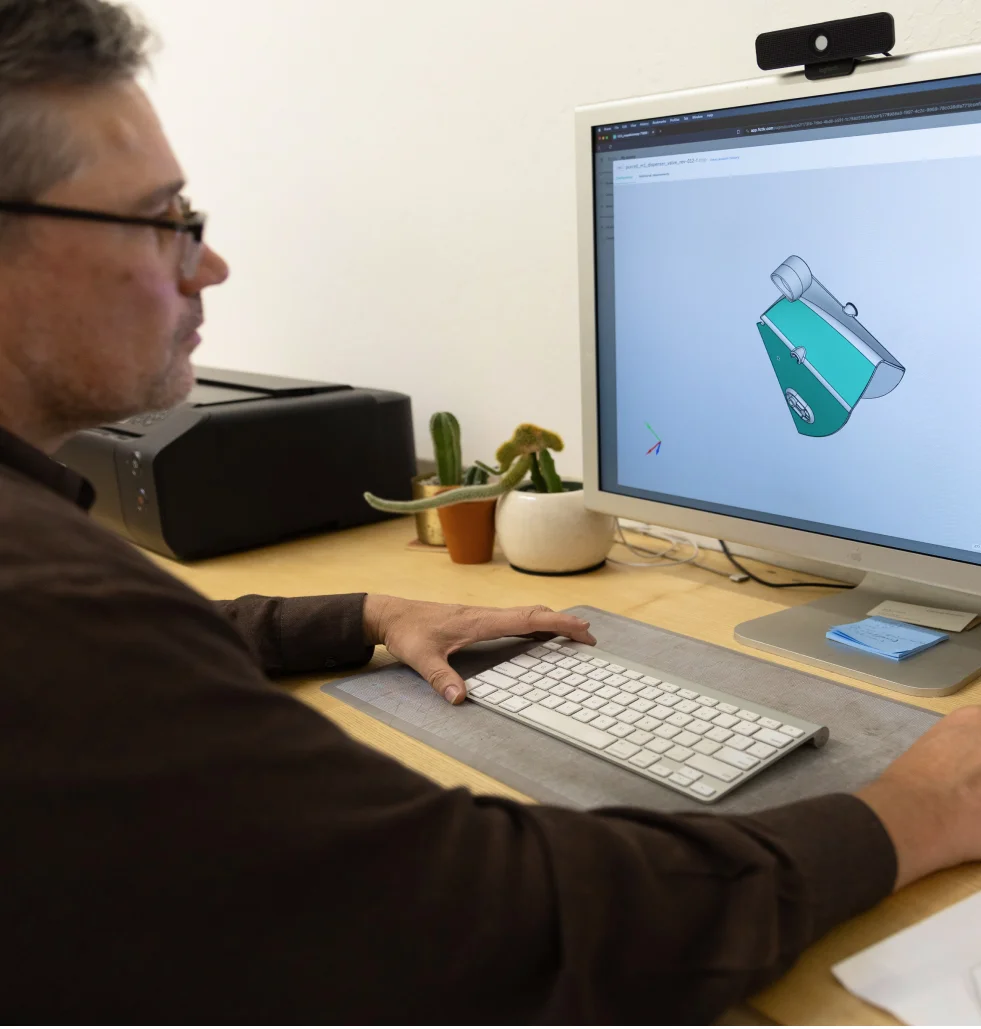
After Fictiv manufactured the injection molding tooling, there were three different mold modifications to fine-tune them down to the tight tolerances required. According to David Conway, “One of the things we pride ourselves on is the precision of our dispensers. Fictiv helped us get it exactly right.”
“One of the things we pride ourselves on is the precision of our dispensers. Fictiv helped us get it exactly right.”
– David Conway, Co-Founder of Purcell
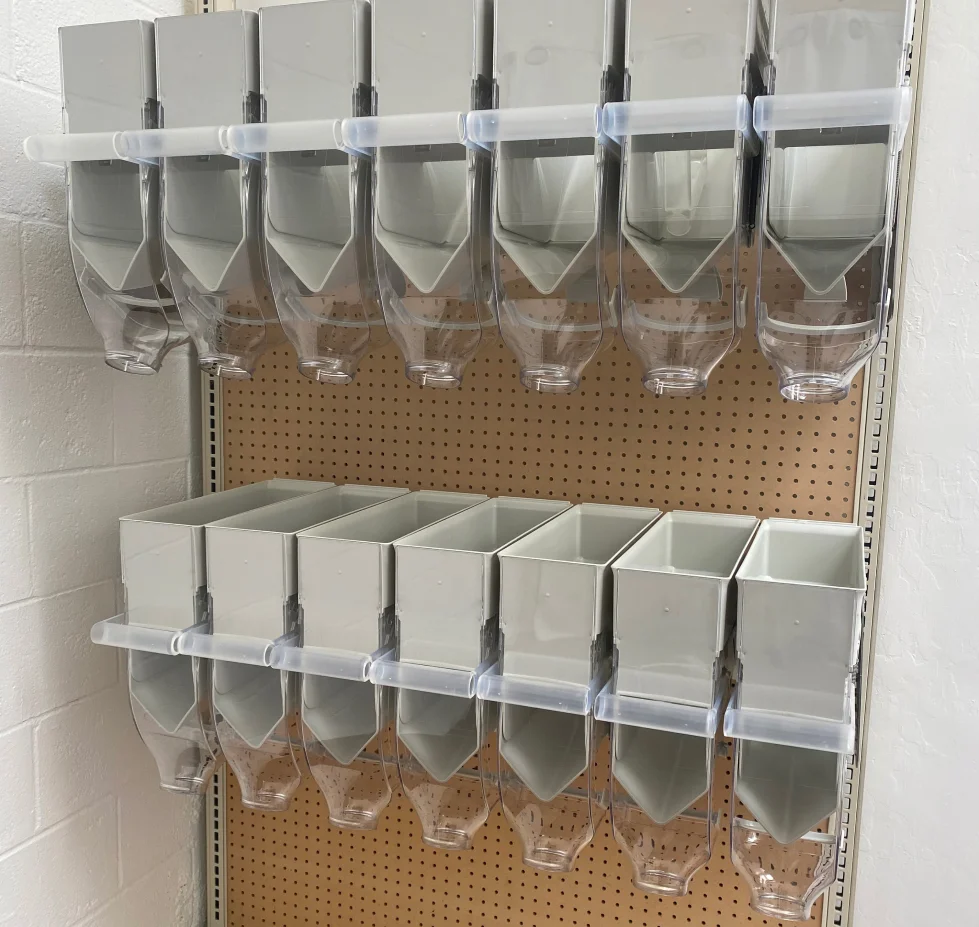
BOM Consolidation
Like many new businesses, Purcell was very concerned with reducing costs and complexity. Fictiv helped by suggesting that Purcell combine two of its support brackets into one piece to reduce the number of components for manufacturing. This recommendation simplified assembly and decreased tooling and part production costs.
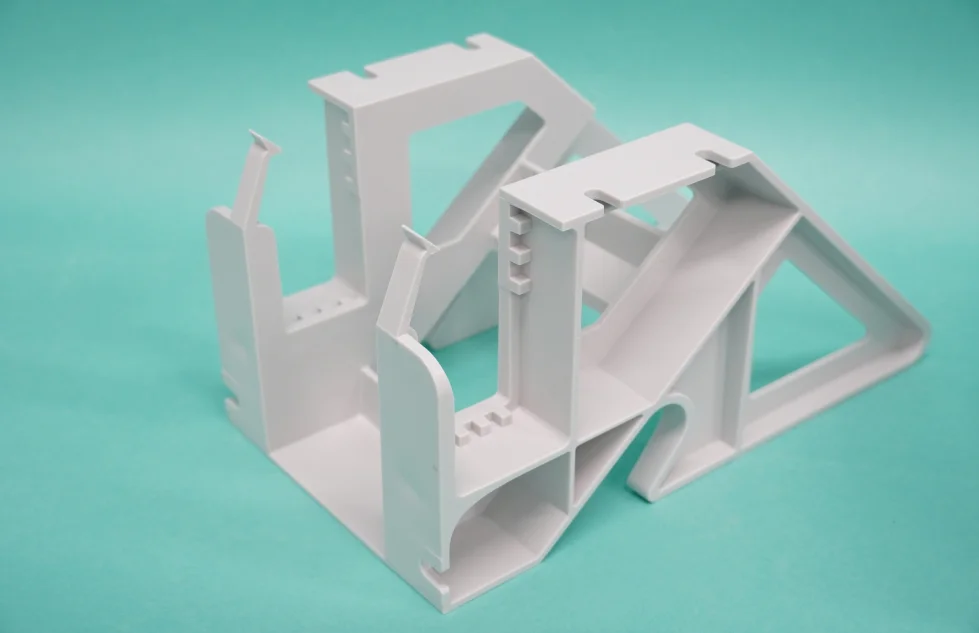
Assembly and Logistics Planning
Next, Fictiv helped assemble the product and provided logistics management services to ensure the assemblies arrived on time and in full. Since Purcell delivers directly to the seller, Fictiv is packing and shipping straight to Purcell (who will then ship to customers) in packs of four to reduce secondary packaging and streamline distribution to customers.
This is one example of how Fictiv went above and beyond typical supplier practices for production.

Manufacturing Purcell’s M1 Dispenser
Fine-tuning the design of every part and the assembled mechanisms has been one of the biggest challenges for the M1 dispenser production, according to Conway. “It’s fine-tuned down to fractions of a millimeter to get everything perfect before we do larger runs. We’ve recently placed an entry-level order of 1,000 parts with Fictiv, which will hopefully increase significantly soon.”
Complete mechanical bill of materials (BOM) and Injected Molded assembly manufactured by Fictiv.
- Extruded ABS Lid: Extrusion is good for simple plastic parts with continuous profiles like this one.
- Injection Molded ABS Body: Molded ABS is good for housing and other components that need strength and some impact resistance.
- Injection Molded Copolyester Nozzle/Facade: Molded Copolyester is best for packaging that requires great clarity and is food-safe.
- Injection Molded ABS Receiver: For this design, the part needed good physical strength to hold the assembled unit in the store.
- Injection Molded Clear ABS Flow Limiter: This was designed to snap into place and limit the movement of the valve.
- Injection Molded Clear ABS Handle: Molded in clear ABS plastic. Usually molded in color and opaque, ABS can also be translucent as required here.
- Injection Molded ABS Valve: This design uses the same plastic as the body, which is the part of the device that releases the contents. Also molded in threaded inserts.

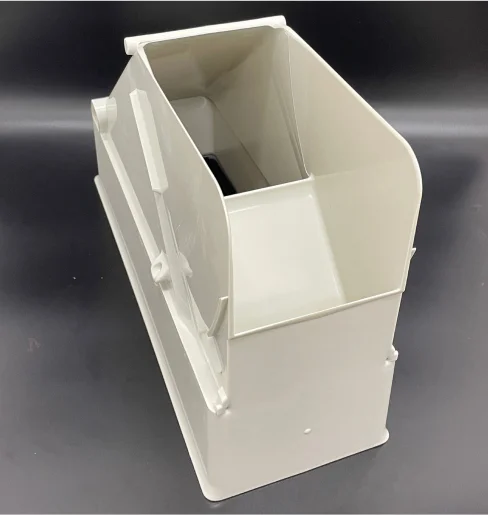
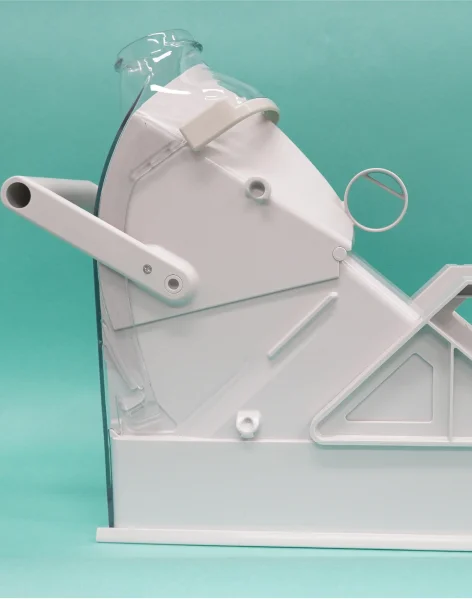

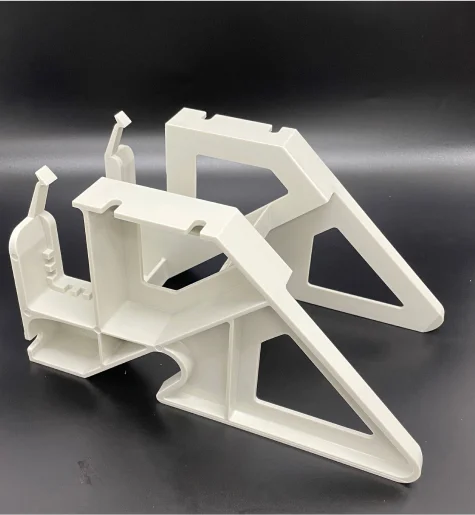
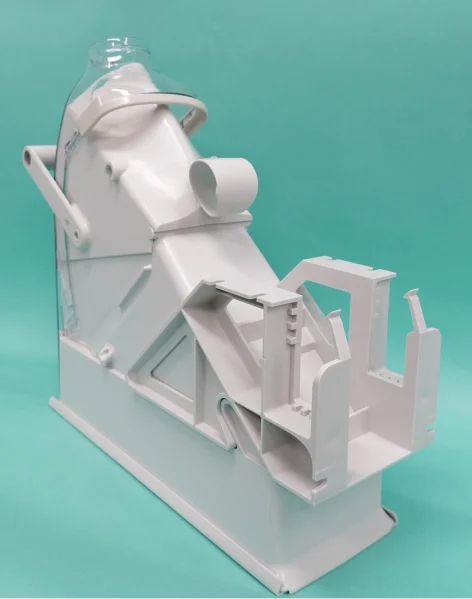
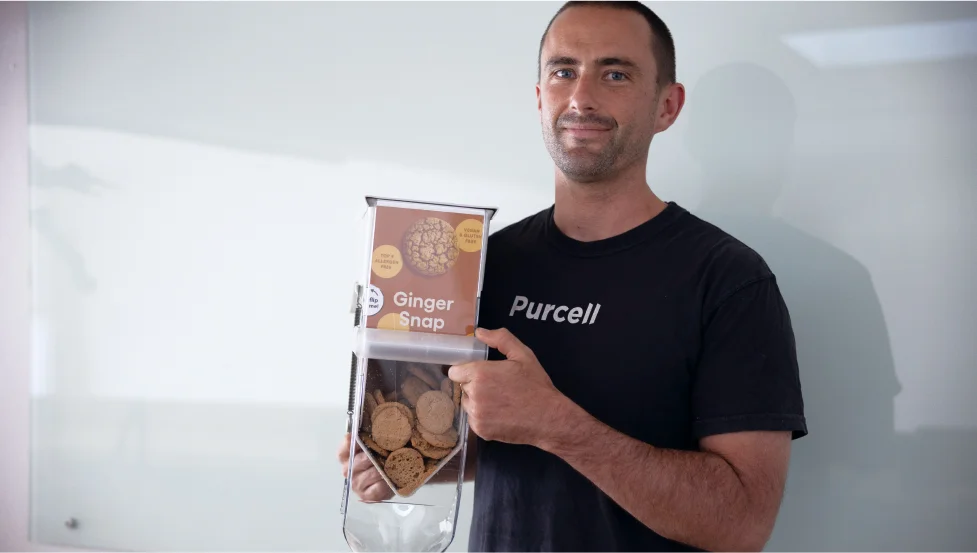
A Fortune 500-Class Supply Chain
Fictiv’s solutions for Purcell went beyond manufacturing a complex product, however. Fictiv’s global network of suppliers enabled Purcell to source every part of the complete mechanical assembly on time, on budget, and to-spec. This plug-and-play Fortune 500-class supply chain translated to an overseas partner for the lowest per-unit part cost, with the quality and lead time Purcell needed.
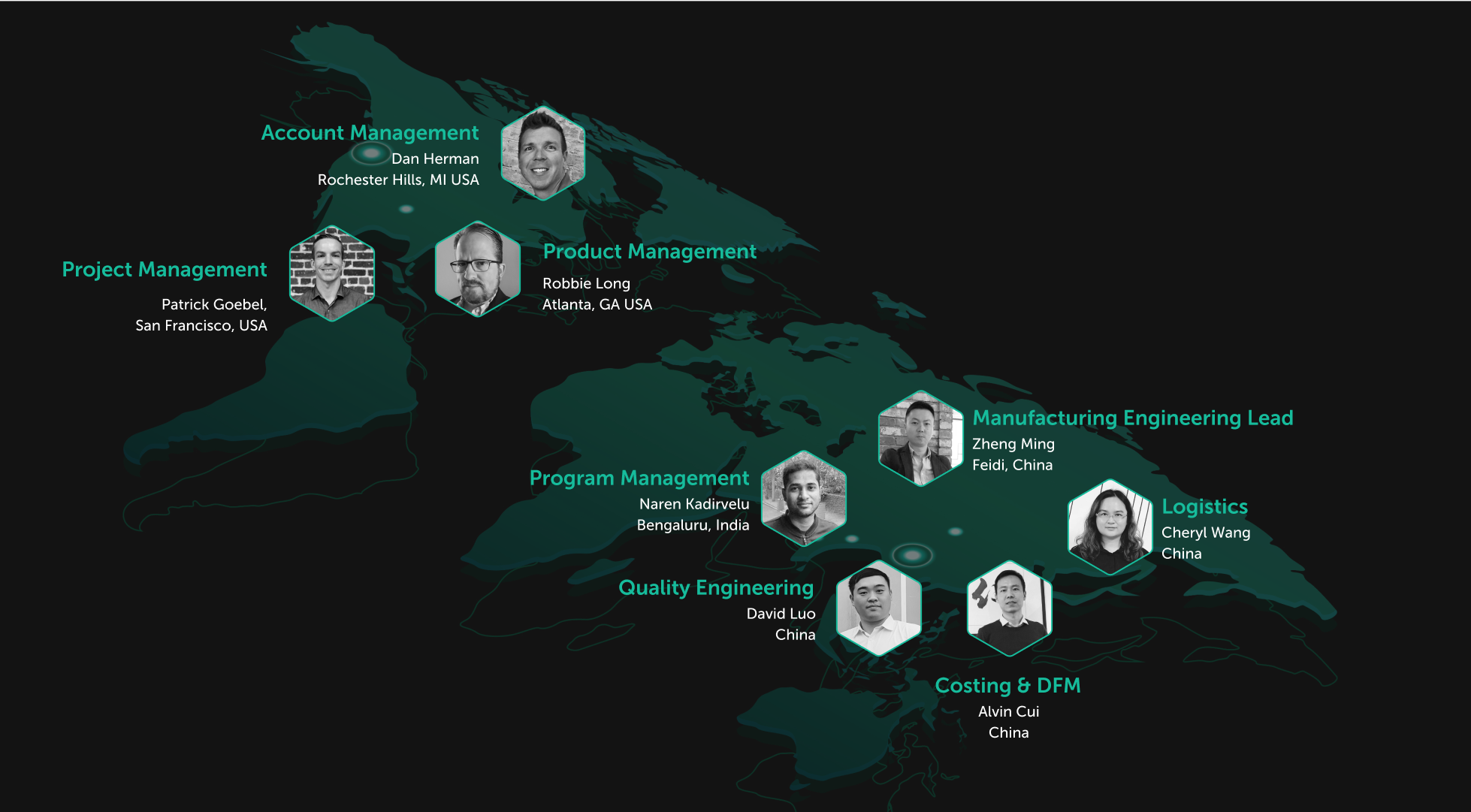
Fictiv’s stringent quality management system for manufacturing and regional quality managers ensured Purcell delivered the best products to customers every time. The expertise, quality management oversight, reliability, transparency, digital infrastructure, and Fortune 500-class supply chain helped Purcell scale quickly.
Transparency
Even as they selected an overseas supplier, Purcell was thrilled with the transparency between teams. “Fictiv told me I could be part of every stage of the process.” The best part for Purcell was that they could communicate directly with Fictiv’s overseas manufacturing partner. “Honestly, I couldn’t speak more highly of the Fictiv team in China. They are some of the most capable folks I’ve come across.”
“Honestly, I couldn’t speak more highly of the Fictiv team in China. They are some of the most capable folks I’ve come across.”
David Conway, Co-Founder of Purcell
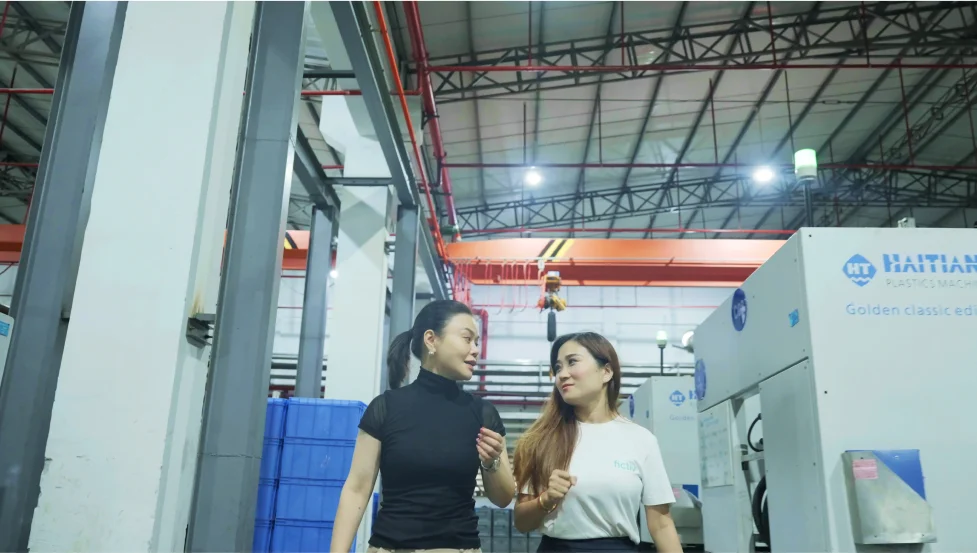
Boots on the Ground
With Fictiv, Purcell was ready to go to market 6 months faster and at a lower tooling cost than other manufacturers offered. Purcell chose Fictiv because of their radical transparency.
“What stood out with Fictiv was that every time an issue came up, the Fictiv team was right on it immediately.”
David Conway, Co-Founder of Purcell
According to Conway, “In this business, in every relationship, there will always be things that come up, things you didn’t expect. Purcell and Fictiv are partnering to produce a brand-new product. It’s not surprising that things get lost in translation. What stood out with Fictiv was that every time an issue came up, the Fictiv team was right on it immediately. It was immediately addressed and remedied and we moved on.”
“With Fictiv, we’re able to work in Asia without going to Asia. For every change we request, we get the outcome digitally, like seeing a video or a picture of it the next day, and receive a sample in two to three days. So we can have instant feedback on the changes we’ve made, and that’s why we’ve had a super positive outcome.”
“With Fictiv, we’re able to work in Asia without going to Asia.”
David Conway, Co-Founder of Purcell
“It’s great if you offer a lower price, but Fictiv’s transparency means you can see further into the whole process from prototype to production. Regardless of where people are located, Fictiv teams gave us confidence we’d get what we need throughout the process.”
Looking Ahead
When we last caught up with David Conway, he was heading back on the road with his dispensers, running demos at select stores, and racking up orders for the Fictiv-manufactured final assemblies. The continued effort (and road trips) required to bring sustainability to bulk products is not only honorable, it’s good business. Without Fictiv, it wouldn’t have been possible.
Conway agrees. “We’re taking the things that we’re using every day: food, cleaning products, dry soaps, and powders and tablets, and we’re packaging them more efficiently. We’re putting everything in the same box and then dispensing at the point of purchase, giving people the amount they need at the grocery store level. And what that does is it changes the entire game. Our customers are making twice as much money per sale. And brands are also saving incredible amounts of money on packaging and transportation costs. Fictiv will help us realize our sustainability goals. It’s a win-win.”










